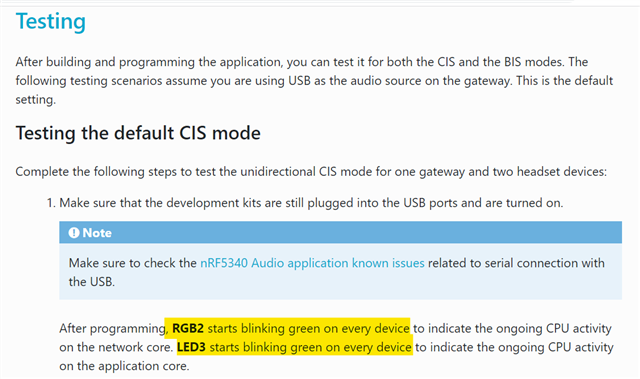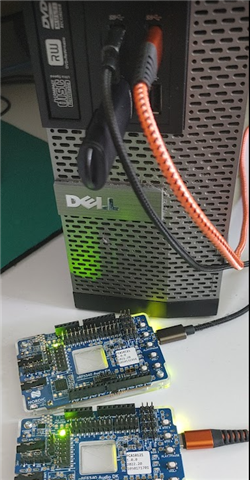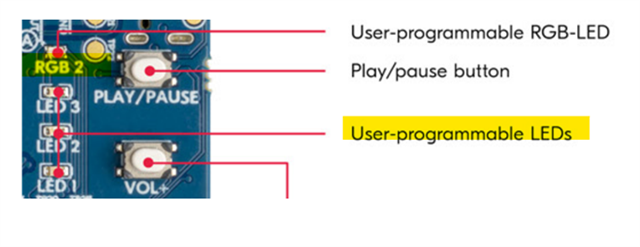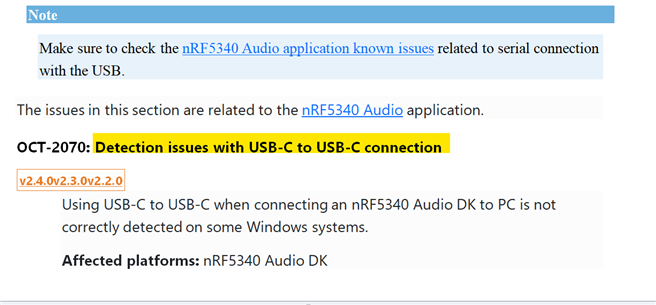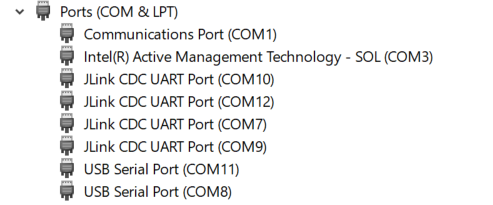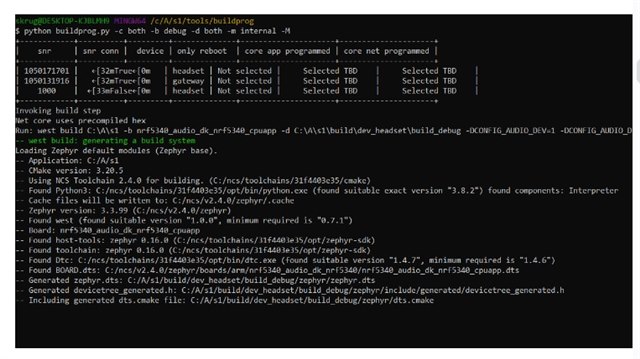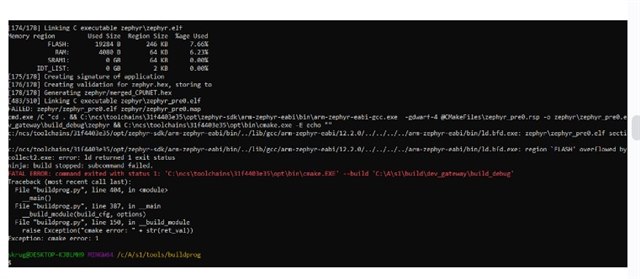PROBLEM:
I am trying to test the nRF5340 Audio DK with the audio application nrf5340_audio. This application is included with the version of the SDK under the applications folder. I have successfully built and programed two boards following the directions on the Audio Example Page.
- Now I'm trying to test the boards using the example in the Testing Section HERE.
- The RGB2 and LED3 are not blinking as described.
- Can anyone help me to determine why?
- Is the version of the SDK supported using the python script?
- Did I build or program correctly?
- I'm stuck. HAs anyone verified this SDK version with the Audio example ?
- Do I need to use an earlier version of the SDK?
Development platform used:
- Windows10
- nRFConnect SDK version v2.4.0
- Audio example from the directory C:\ncs\v2.4.0\nrf\applications\nrf5340_audio
- Audio Example page nRF5340 Audio
- Toolchain Manger v1.2.5
What I have done to this point:
- o To Build I use the command:
- python buildprog.py -c both -b debug -d both -m external
- Results: the report showing a successful build

- Note: I'm using "-m external" because '-m internal" did not work because the debug firmware was too big, I mentioned this above.
- To Progra, I Use the command:
- python buildprog.py -c both -b debug -d both -p --recover_on_fail
- Results: the report showing that both the App and the net have been programmed to the boards.

Still get the use recover arg error in the output, even though I ran the command with “--recover_on_fail” ?
Received some other errors refer to “s4_program_sucess_with_recover.txt”- NOTE: The App doc page is incorrect the program command has an incorrect argument “--recover-on-fail”! It should be defined with underscores not dashes.
THIS NEEDS TO BE FIXED ON THE DOC PAGE TO STOP CONFUSION WHEN USING THE AUDIO EXAMPLE TO BUILD & PROGRAM the KIT
Here's a snapshot of the section on the Page where I'm referring to in my problem statement from above. Testing Section
